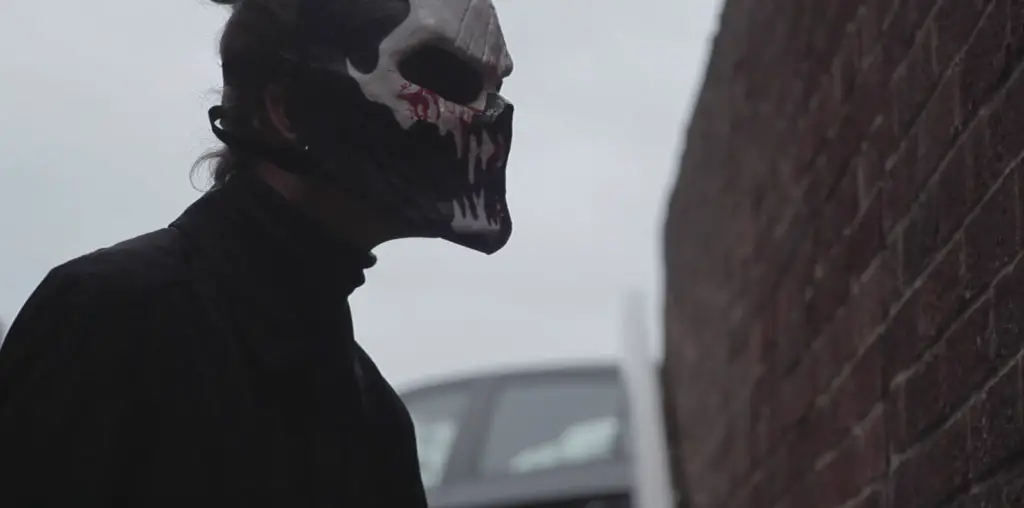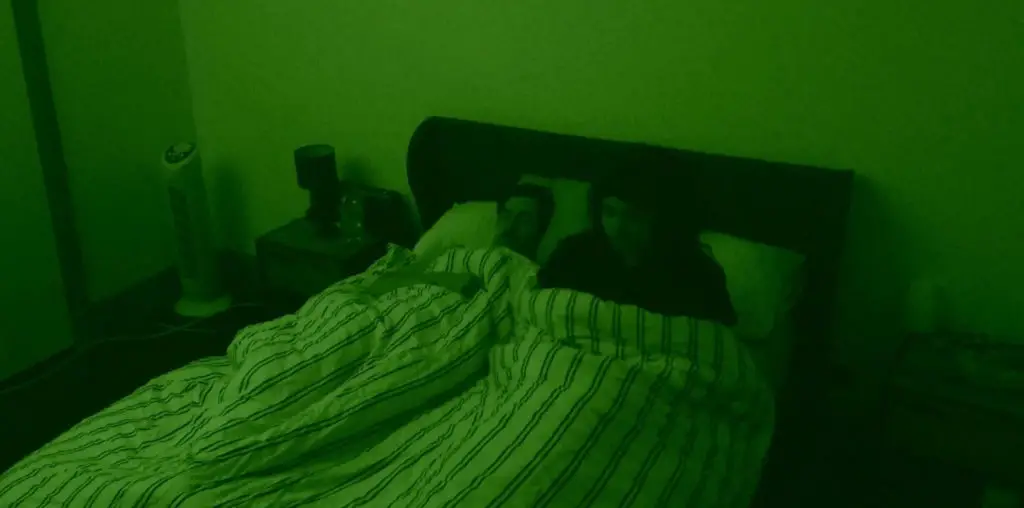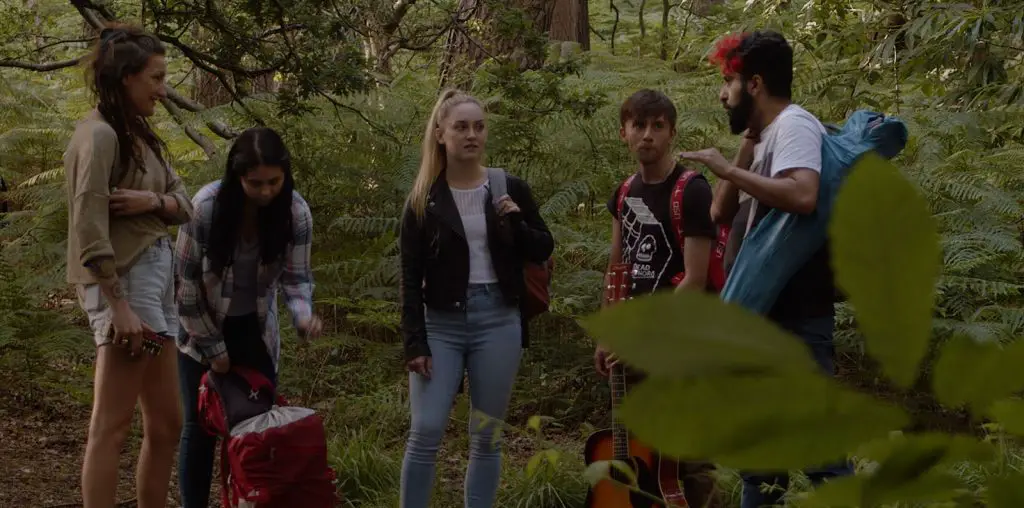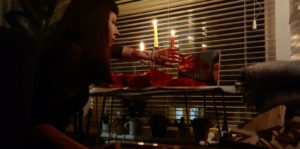
Para-Psych Trauma is an anthology with segments written by Jackson Batchelor, Sam Mason-Bell, and Martin W. Payne, who all direct along with Simon Berry and Mike Peter Reed. The throughline (it’s not really a wraparound) involves an eclectic mix of people participating in a study about the psychological effects of playing around with a spirit board. To that end, everyone involved will film their home lives for 30 days after using the spirit board to document what happens. Of course, this is a horror film, so eerie supernatural happenings befall each person.
After setting up the experiment via study interviews, the first segment is about Sean (Chris Mills) and his girlfriend, Lacey (Jessica Hunt). While it is Sean who is officially in the study, it is Lacey who suffers. She wakes up with unexplained bruises, and some unseen force appears to be dragging her around. Who or what is after Lacey and why?
Martha (Teo Dumitrul) is a Wiccan desperate to make contact with the other side. Her results are much bloodier than expected. Meanwhile, fellow participant Graham (Chris Wrein) believes he contacted his deceased wife. This presence coaxes Graham to consider killing himself, worrying his daughter Jenny (Sophie Atkinson). Does he go through with it, or does Jenny convince her elderly pa that there is more to live for?
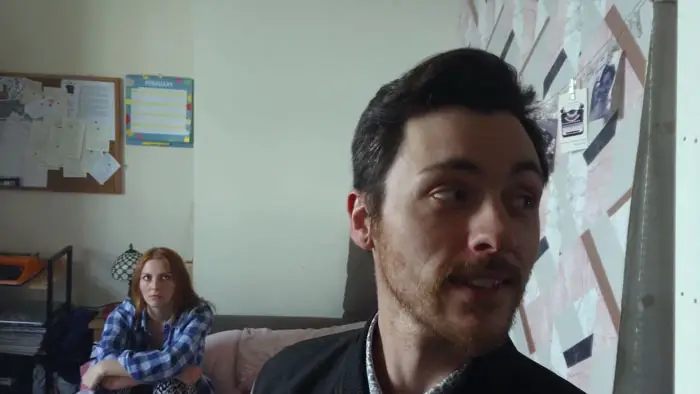
“…a study about the psychological effects of playing around with a spirit board.”
Then Para-Psych Trauma follows the meek Debbie (Eve Kathryn Oliver). Her husband, Henry (Mark Margason), is emotionally and physically abusive. Her ghostly encounter seems to not want to harm her but rather to protect Debbie from her spouse. Is it a real supernatural presence, or has Debbie finally found a way to stand up for herself?
Finally, there’s the story of Rebecca (Katie Watson), whose thesis project this is. Using her reactions as a baseline for everyone else, she too participates. However, Rebecca is soon haunted by an apparition. Is it her recently deceased father or something far more sinister?
Interestingly, Para-Psych Trauma, unlike most anthologies, does not cut to the framing device between each narrative; thus, the term “wraparound story” was not used. Instead of having a “Day 1” intercut with every character, then “Day 2,” each person’s story plays out in its entirety. As such, the timeline is reset with each new tale, but that isn’t a problem. It allows for a smooth transition between every segment, giving audiences the opportunity to understand the character(s), their life, and how the spectral visitors affect them for better or worse.
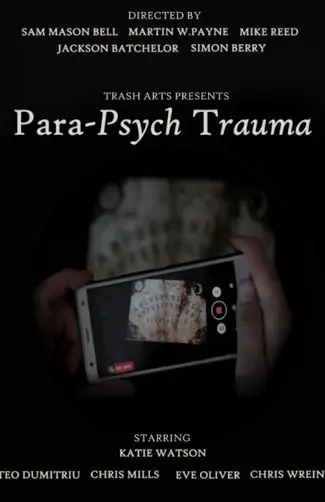
"…haunting and thrilling."
